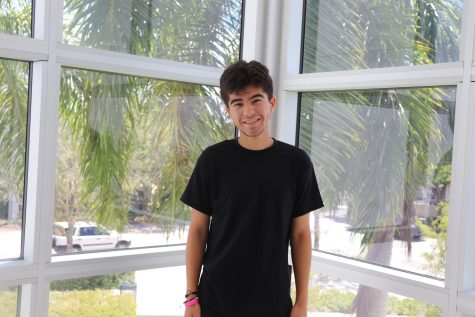Faces Arrives to Streaming Platforms
October 24, 2021
A labor of love and passion, the late Mac Miller’s “Faces” ranks among the quintessential works of other rappers.
Prior to his passing, fans had been begging Malcom McCormick — also known as Mac Miller — and his management to add the mixtape to streaming services. Before Oct. 15, the mixtape was only available through Datpiff, YouTube and other sites that did not require sample clearances unlike mainstream platforms such as Spotify and Apple Music.
Sampling is when an artist uses a section of an already released audio recording and incorporates it into their music. Musicians who frequently sample become masters at the craft, allowing them to use television and other unorthodox recordings to add to their music.
Without the clearance of samples, the musician is subject to large fines from the owners of the original recording. Due to the plethora of samples used throughout “Faces” and the fact that Miller wanted to release the mixtape for free without the worry of a major label, the mixtape remained off of major streaming services for more than seven years.
Miller’s 2014 mixtape came after a slew of touring and nonstop media attention. The process to create the project was a complete 180 for Miller, and seemed like complete isolation from the outside world. Despite that, the process was heavily impacted by other artists that made contributions to the project’s end product.
“The Sanctuary,” as Miller and many of his collaborators describe it, was the in-home studio which any artist that worked with Miller in the past could come and add to the project.
Artists such as Vince Staples and Earl Sweatshirt became staples of the project with their thought provoking features which highlight their point of view on the topics which Miller covers. Earl Sweatshirt’s additions to tracks such as “New Faces v2” and “Polo Jeans” serve as some of the highest points within the project.
Throughout the project, Miller speaks openly about his struggles with addiction and existential thought. The question of life and death seeps through the album, as Miller uses the mixtape as a beacon of self-discovery during this period of his life.
The original outro of the project “Grand Finale,” emphasized with its opening guitar riff and grainy drum pattern, is also one of the most memorable moments of the mixtape.
With its 2021 rerelease, fans were pleased to receive a new bonus track, “Yeah,” which acts as an epilogue to the project and wraps up its final thoughts.
“Grand Finale” and “Yeah” compliment each other as the former speaks on Miller’s death by speaking of the little time he may have left on Earth with tight raps directed towards his mortality, while the latter is an explosive, more ballad-like song, which is reminiscent of a track that could have been the outro for a project such as 2015’s “GO:OD AM” or 2018’s “Swimming” LPs.
The process of finding himself included embracing the alias Larry Fisherman, which Miller used when producing tracks.Throughout the project, Miller refers to him as “The Fisherman” as a way of explaining his internal struggles from an external view point. It seems as though he is talking to himself throughout most of the tracks. In 2012, Miller produced the instrumental mixtape, “Run On Sentences” under the same pseudonym.
Personally, the album resonates with a grim and dark tone and is infectious and compelling. Miller’s lyrical ability was extremely heightened throughout the project compared to all of his past endeavours.
From the beginning of the project, Miller packs meaning and substance in every lyrical bar he puts into his songs. Contributions from fellow artists and producers add to the overall aura and feeling that Miller aimed to convey.
One of Miller’s best projects is now available for everyone to hear on streaming services. Fans have recently commended McCormick’s estate for treating his posthumous releases so well and staying true to himself as an artist.







